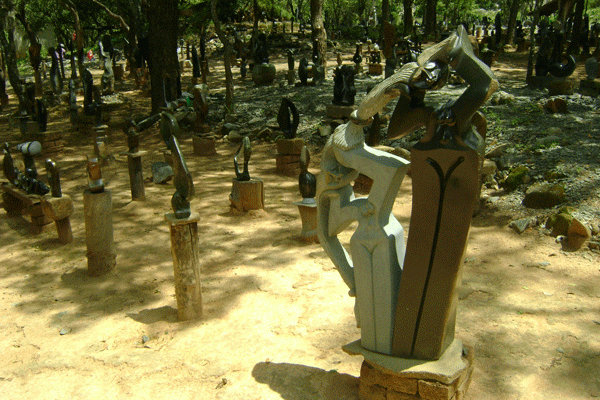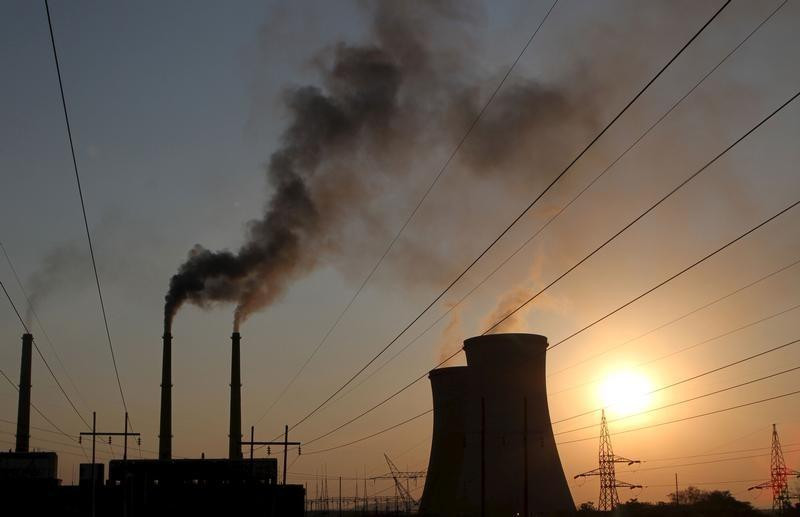
Despite powerful evidence that climate change threatens our economies, our health and our safety, most countries remain slow to act on environmental protection. Why don’t we want to hear about climate change and what is behind global citizens’ collective inaction?
WISDOM MDZUNGAIRI VIEWPOINT
At the conclusion of the two-week United Nations talks at the weekend observers warned that broken promises on climate action by rich industrialised countries was hampering progress toward a new agreement. It appeared that although the meeting kick-started on a high note the cupboard remained bare.
It is compelling to note that all countries agreed in 2012 that 2014 was the year that developed countries’ targets would be revisited and increased.
But, civil society groups warned that the new climate rules could threaten even greater hunger in Africa, if they weren’t carefully crafted to protect the rights of small-scale farmers – the majority of whom earn a living through farming.
According to a communiqué, negotiations on a new climate deal struggled due to trust issues – but Africa vowed not to be hoodwinked by technical or procedural tricks.
This was in reference to problems at the talks over the chairing and a renewed focus on how to account for emissions from land-use.
A rule of international diplomacy dictates that negotiations can’t work when promises are broken. It is a fact that Africa was promised a legal second commitment period of Kyoto, but still its not there. The continent was also promised that emission cuts would be strengthened this year (but) they haven’t.
- Chamisa under fire over US$120K donation
- Mavhunga puts DeMbare into Chibuku quarterfinals
- Pension funds bet on Cabora Bassa oilfields
- Councils defy govt fire tender directive
Keep Reading
So, this round of talks focusing on increasing climate actions in the near-term and on creating a new climate agreement for 2015 – to come in to effect in 2020 could have been reduced to just like any other failed negotiations.
Africa strongly differed that she cannot have a situation where because of UN rules “we count emissions from farming as if it were industrial emissions.
It would open the door to trading in the soil of African farmers by the bankers in Europe. Comparing apples and oranges like that puts the whole fruit-cart at risk.
“We are concerned about counting emissions from the land-sector in Africa a new deal but we don’t want to see farming left out completely — in fact it has to be there for adaptation. There must be sharing of finance and technology to allow the farmers in Africa who are hit by climate change they have not caused to be able to respond.”
Why should African countries including Zimbabwe focus more on climate change issues? Precisely, some 70% of our citizens earn a living through agriculture. Forest loss and land use change play a significant role in climate change, contributing around one quarter of global greenhouse gas emissions.
In climate discussions this far, the role of forests in mitigation has been developed first through land use, land use change and forestry for developed countries, and then through reduced emissions from deforestation and degradation (Redd+) for developing countries.
There is also a limited role for Lulucf activities for developing countries in the clean development mechanism. Regrettably, discussions on the role of agriculture in mitigation have been limited, with food security concerns prominent.
In the Zimbabwean context, the land sector is unique in climate mitigation as it is the only sector where both emissions and removals occur. Emissions and removals of terrestrial carbon occur on different time scales than fossil carbon sequestration.
This speaks to the need for the ministries of Environment, Water and Climate; Lands and Rural Resettlement and Agriculture to complement each other in dealing with climate issues and crafting position papers that impact on the welfare of the citizenry.
This means that terrestrial carbon and carbon from fossil fuel use are not the same – because of the time scales involved, emissions from fossil carbon can be considered permanent, while sequestration of emissions in the land sector (forests and soils) is only temporary.
The central role played by the land sector in providing for the food and livelihood security of peoples, communities, and countries means that Zimbabwe’s mitigation policies must ensure food security and sovereignty measures, biodiversity protection including wetlands, and ensure rights and other social and environmental standards and safeguards.
So, any mitigation measures for the country’s land sector must not be used as an excuse to derail or delay the implementation of agrarian reform.
Hence, mitigation activities in the land use sector must be conducted in a way of not impacting biodiversity in order to make sure that the global climate talks do not jeopardise the objectives of other Rio Conventions whose targets – biodiversity conservation and combatting desertification – must be strengthened by climate mitigation activities.
However, addressing all of these unique attributes of the land sector requires a comprehensive approach to land-use planning, which is not focused solely on mitigation action, but on establishing a broad framework for the development and support of policies and measures to enhance and protect land-sector resources and the wealth of benefits derived from those resources.
Perhaps it is the role of the Agriculture or Lands ministries that might be a missing link to Zimbabwe’s climate mitigation efforts –and that needs redressing as a matter of urgency.
Notably, the new round of talks the past fortnight turned their attention to land-use rules for the first time. This was important to small-scale farmers in Zimbabwe and pastoralists in other developing countries, (but) the wrong set of rules will set up a raft of risks including the buying up of soil due to its carbon-mitigation potential except in Zimbabwe for reasons already known to the world.
It is imperative perhaps that when the talks resume in Peru in October, Zimbabwe should have a comprehensive policy position with input from the Ministries of Lands and Agriculture on global warming.
Zimbabwe must make sure the talks on agriculture and land at the next climate talks don’t start off wrong-footed. Zimbabwe needs to focus on how to support farmers to deal with the impacts of a changed climate, not on hair-brained soil carbon accounting tricks.











